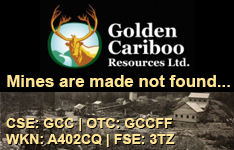Amanda Long: People say gold really should be doing better than it is now and that actually becomes a justification for not buying it. It’s not doing what it should be doing in a crisis and, therefore, I don’t want to own it.
John Embry: That is a wonderful analysis because that is exactly the mindset the guys who are driving the price down are trying to create. Gold doesn’t work so keep away from it. They’re able to control the price quite easily in the paper markets because the paper markets are so huge in comparison. “The guys” – the central banks and their bullion bank accomplices—have a lot of power and a lot of money, so they can overwhelm the other side. But what’s happening is that the physical supply is diminishing dramatically. It’s getting harder and harder to purchase gold and silver through traditional avenues. You can’t get it in coin shops to any extent. You can’t get it through your banks. The physical side is really constricted by supply. That, to me, is the reality. The paper stuff is just the illusion.
AL: Now the problem, of course, for investors is that the paper market is the one you’ve got to play and, for the most part, it affects the price. How will that be resolved?
JE: What will have to happen is the people that are on the long side of the paper market in, say, on Comex, are going to have to call for delivery. When they call for delivery and there isn’t enough gold available to meet that call, the game changes. That is probably going to be the event that changes the perception. There’s a suggestion that something may happen around the time of the maturity of the December contract.
AL: Would you expect them to do that out of fear? In other words, they’d literally want to take delivery so that they have gold in their vaults?
JE: I would think that would be the best reason to do it for the simple reason that I want physical gold today. I mean that is the one thing you can trust. Paper gold, who knows? You may have a force majeure in the sense that people in the end will settle for paper and you won’t have the gold protection you think you have. You’ll get your money’s worth, but you’ll have paper. So that to me is the reason why I think somebody’s going to say, wait a minute, I want the gold. [Ed. Note: Force Majeure is a common clause in contracts that essentially frees both parties from liability or obligation when an extraordinary event or circumstance beyond the control of the parties, such as war, strike, riot, crime, act of nature (e.g., flooding, earthquake, volcano), prevents one or both parties from fulfilling their obligations under the contract.]
AL: In that transaction people ask for delivery. Will that trade crush a lot of people? Are there a lot of people who are short this market?
JE: Yes, without question. For the people who are short this market, there will be a force majeure and they will have to settle in paper because they can’t meet the requirements of gold. That is going to be the seminal event that defines this whole situation.
Embry has a solidly bullish view of the precious metals. On the other hand, his short-term stance on the base metals is bearish. He clearly regards the precious metals as being in an altogether different category and explains why in the edited segment of the interview below.
JE: At this stage of the game, gold and silver are monetary metals. All the rest of the commodities are industrially driven. I’m not a long-term bear in base metals. I’m a short-term bear based on the fact that I think we’re in considerable demand destruction at the same time that there were some significant positions held by leveraged hedge funds in London and the U.S. that are being unwound. As you know, the hedge fund business, particularly the leveraged ones, are just getting slaughtered.
AL: When will that be over? When will the margin call stop being a major factor in daily trade?
JE: It’s happening so fast that I’d hoped it would be over sooner rather than later. I’m really reluctant to make hard and fast predictions because we’re dealing with a situation that we’ve never seen before. We’ve never had this much leverage in the system and it’s been amped up by derivatives. The authorities have a huge task on their hands trying to recapitalize the banking system and getting this thing moving in the other direction, but time will tell.
AL: The perception is that a lot of base and precious metals and all the commodities have been affected by the inflow of capital from ETFs and hedge funds—and that really increased the impact of the speculative element…
With copper below $2—assuming China doesn’t go to zero—at what point do say, this isn’t a bad entry point?
JE: We’re getting pretty close to breakeven in copper now because costs have gone up so much. But things can often go through breakeven in the short term. Gold and silver are already there. Consequently, I think that we could still see a spike down. Who knows how low? But I think a longer-term copper price would probably be at $4.00 or realistically somewhere in the current area.
AL: Is it too soon to start thinking about buying a base metal producer?
JE: Well, the problem is that the base metal producers have done really well because they were able to put some fat on their bones; whereas, precious metals producers have never made any money in this cycle to speak of. Now that it’s come back hard, I think they’re getting so cheap. If the company’s really well-financed and it has a low quartile cost mine, this is the time you get into these things as a long-term investment when everybody else is fleeing for other reasons.
In closing, Embry discusses the case for platinum. The chart for the metal “looks like it’s just gone off the side of a cliff.” He attributes platinum’s precipitous fall to the demand destruction that has accompanied the devastated automobile industry. “At some point you have to start looking at the cost of mining platinum and we’re getting down to that level.” He regards the economics for gold and platinum as being linked. “That’s why I always thought gold was suppressed because platinum was trading at over two times the price of gold. Now platinum’s come way back for demand reasons and it’s reaching a level where I would certainly look at it because it is a precious metal.”





































